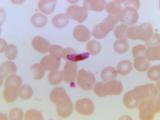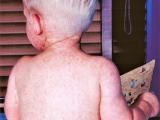Jul 27, 2011
Man charged in Norway attacks eyed using anthrax as weapon
The manifesto written by the man charged in last week's bombing and shootings in Norway outlines plans to use anthrax in his war against what he regards as the growing threat of Muslim domination in Europe, but there was no evidence that he had obtained the pathogen, the New York Times reported yesterday. The 1,500 page manifesto written by Anders Behring Breivik has sections that discuss how to obtain, cultivate, and use anthrax, calling it "one of the most effective" weapons, the story said. The document cites a goal of using anthrax to mount "surgically precise attacks" on people and buildings. But bioweapons experts told the Times that the manifesto contained no evidence that Breivik had obtained anthrax or could use it as a weapon. "He obviously doesn't have any specialized knowledge," said Matthew S. Meselson, a Harvard biologist and expert on biological weapons. "He's copied words from other places, and says himself that he doesn't have the expertise." Breivik is charged with killing at least 76 people on Jul 22 in an Oslo bombing and in a shooting rampage at a summer camp for young political activists.
Jul 26 Times story
Hong Kong scarlet fever cases continue to ebb
The number of newly diagnosed scarlet fever infections in Hong Kong's outbreak continued to drop, with only eight new cases reported since yesterday and 50 cases reported since Jul 11. The region's Centre for Health Protection (CHP) said in its latest update that no new outbreaks or deaths have been reported. The latest cases raise the outbreak total to 998 cases, and the number of fatalities stands at two.
Pennsylvania warns of measles exposure
Pennsylvania health officials yesterday issued an alert that people in four counties may have been recently exposed to measles at certain locations on Jul 21 and 22. The locations, which include a grocery store, two restaurants, a coffee shop, a bank, and a liquor store, are in Berks, Delaware, Lehigh, and Bucks counties. The Pennsylvania Department of Health said in a press release that the exposure is related to an earlier alert they issued when a patient diagnosed with measles visited a Rite Aid drug store in Berks County on Jul 11. Health departments in Berks, Delaware, and Lehigh counties are offering free immune globulin immunization. In other developments, two school districts in Columbia County, New York, have alerted parents about pertussis outbreaks, the Hudson-based Register-Star reported. The districts are in east central New York. County health officials asked Chatham Central School District and the Ichabod Crane School District in Valatie to post notices on their Web sites, and the Chatham district notified parents through its automated phone alert system. No details were available on the number of students affected by the outbreak.
RAND book examines public health changes since attacks of 2001
The public health system in the United States has improved significantly since the terrorist attacks of 2001, but it still faces serious challenges, especially the need to enlist all sectors of society to share responsibility for public health emergency preparedness and response, according to a chapter in a new book from the RAND Corp. titled The Long Shadow of 9/11: America's Response to Terrorism. The chapter is written by Jeanne Ringel, a leader of a public health initiative within RAND Health, and Jeffrey Wasserman, a RAND senior policy researcher. They write that the federal funds that flowed to public health starting in 2002 led to a number of improvements, which were best illustrated by the response to the 2009 influenza pandemic, despite its shortcomings. Important remaining challenges include inadequate surge capacity, disparities in community preparedness, inadequate integration of public health and the healthcare system, the current decline in funding, and public complacency. The chapter says the Department of Health and Human Services' National Health Security Strategy offers a "useful roadmap" for meeting the challenges. The strategy seeks to change the long-standing attitude that public health preparedness is mostly the government's responsibility and to emphasize the need for all sectors, including individuals, community organizations, and businesses, to contribute to health-security efforts.
Jul 26 RAND press release
Full text of RAND book
Dengue surveillance needed in Africa
The prevalence of dengue fever in Africa has been unclear, with world attention focused mainly on the rapidly rising reports of the disease in the Asia-Pacific and Americas-Caribbean regions. The authors of a study in Emerging Infectious Diseases, recognizing that even in areas of the world with high-level public health, clinical awareness, and diagnostic capacity the disease remains highly underrecognized and underreported, analyzed data from Africa to assess dengue's epidemiology and incidence there. They examined published literature, unpublished country reports, the World Health Organization library database, and other sources for mentions of dengue in Africa for the period 1960-2010 as well as the references listed in reports found. They also sought reports of the disease in travelers from nonendemic areas who visited Africa. The researchers found reports of sporadic cases or outbreaks in 22 countries and dengue in travelers to another 12 countries. Limited serologic surveys suggested that dengue is endemic in all or much of Africa. The authors note a number of possible explanations for the paucity of reported cases of dengue in Africa, among them that most febrile illness in Africa is not assessed by laboratory diagnostics and is assumed to be malaria. "Sustained, systematic surveillance for dengue-like illness combined with laboratory diagnostics and education of health care providers . . . is needed in Africa to determine the epidemiology and public health role of dengue," the report says.
August EID article



















